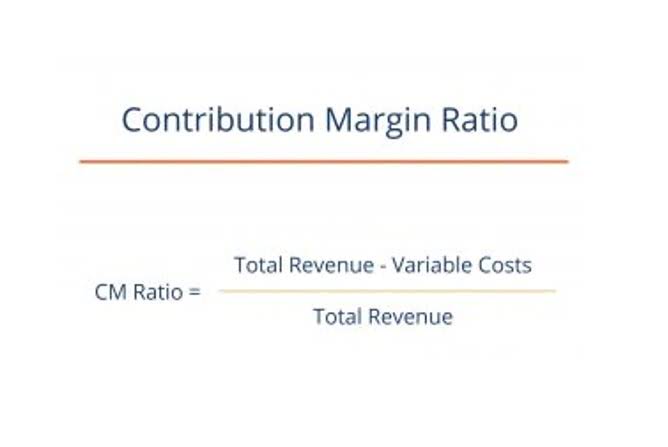
In addition, at the end of the life of the Bond, you are entitled to full repayment of the Face Value (or ‘Principal‘) of the Bond. First, Stocks represent a unit of Ownership in a Business, whereas Bonds are a unit of a larger amount of money lent to a Business. In this article, we will provide a simple, Plain English review of the difference between Stocks and Bonds. We’ll make sure a financial professional gets back to you shortly.
- It’s important because it helps mitigate the impact of poor performance from any single investment.
- The differences between stocks and bonds don’t make one strictly better than the other.
- While bond prices typically start at a minimum of $1,000, most stocks trade at much lower price points.
- Understanding these differences can help investors make informed decisions when constructing a diversified investment portfolio.
- There are many adages to help you determine how to allocate stocks and bonds in your portfolio.
- Most experts recommend mutual funds, groups of investments in a number of different stocks.
Bonds are loans investors provide to entities like corporations or governments who repay with interest, representing debt. Northwestern Mutual is the marketing name for The Northwestern Mutual Life Insurance Company and its subsidiaries. Life and disability insurance, annuities, and life insurance with longterm care benefits are issued by The Northwestern Mutual https://www.bookstime.com/ Life Insurance Company, Milwaukee, WI (NM). Longterm care insurance is issued by Northwestern Long Term Care Insurance Company, Milwaukee, WI, (NLTC) a subsidiary of NM. Investment brokerage services are offered through Northwestern Mutual Investment Services, LLC (NMIS) a subsidiary of NM, brokerdealer, registered investment advisor, and member FINRA and SIPC.
The key differences between stocks and bonds
Generally, strong economic growth and positive investor sentiment drive stock prices up, while economic downturns and negative sentiment can drive prices down. Interest rates and inflation are two market conditions that significantly influence bond prices. Stockholders, particularly those who own common stocks, typically have voting rights in the company.

Once registered, users can explore a vast array of stocks, make informed decisions using integrated research tools, and execute trades. Beyond the basics, Public.com offers advanced features tailored for the modern financial landscape. Extended hours trading lets investors act outside traditional market hours, while instant deposit and withdrawal functionalities ensure seamless fund management. Operating as a PFOF (Payment for Order Flow) free broker, Public.com emphasizes transparency, ensuring trades are executed without hidden costs.
Bonds: pros and cons
Of course, that’s a generalization and the performance of a stock will vary quite a bit depending on the company. It’s a financial index that’s made up of 500 of the most economically powerful companies in the United States. They can drop or rise in value day-to-day, but over the years, these companies have in your own words, explain the difference between stocks and bonds performed pretty well, making them a less risky long-term bet, since they’ve held their value pretty steadily. It’s also worth noting that investing all of your money in a single company is probably a bad idea. Most experts recommend mutual funds, groups of investments in a number of different stocks.
- The amount of capital gains tax can vary based on how long you’ve owned the stock.
- Bonds have a fixed maturity date when the principal amount invested is supposed to be returned to the investor.
- Stocks may also pay dividends, which are a share of the company’s profits distributed to shareholders.
- Contrastingly, stocks are considered a better option for investors with a longer investment horizon who prioritize strong returns.
- They serve different roles, and many investors could benefit from a mix of both in their portfolios.
While you may earn more with stocks, you may also stand to lose more. Bonds generate returns through periodic interest payments and with the principal amount returned to the lender at the end of the period. However, it’s important to note that bond prices may fluctuate during that holding period and can be sold for a gain or loss prior to your term ending. There are two ways to earn money by owning shares of stock is through dividends and capital appreciation. If a company has 1,000 shares outstanding and declares a $5,000 dividend, then stockholders will get $5 for each share they own. Capital appreciation is the increase in the share price itself.
Hey, Did We Answer Your Financial Question?
Despite having a maturity of up to 30 years, some bonds can be paid off early. When this happens, the bond issuer returns the invested principal early. The investor would keep any interest paid to that point, but the early repayment would end any future coupon payments. Although stocks have greater potential for growth than bonds, they also have much higher levels of risk. With stocks, the prices can rise and fall for a variety of reasons, including factors outside of the company’s control. For example, supply chain issues and even weather conditions can affect a company’s production and cause stock prices to plummet.
The board of directors is responsible for increasing the value of the corporation and often does so by hiring professional managers, or officers, such as the chief executive officer, or CEO. 11 Financial is a registered investment adviser located in Lufkin, Texas. 11 Financial may only transact business in those states in which it is registered, or qualifies for an exemption or exclusion from registration requirements.
Hedge Funds vs Mutual Funds Made Easy – Definitive Guide (
It is, however, essential to note that all investments carry risks, and their returns are not guaranteed. When it’s about investment, every investor look for different investment avenues park their funds and provide good returns, such as stocks, bonds, debentures, futures, options, swaps, and so on. While investing in stocks gives you an ownership interest in the company and also delineates clain in the company’s property and profits. This information is not intended as a recommendation to invest in any particular asset class or strategy or as a promise of future performance. There is no guarantee that any investment strategy will work under all market conditions or is suitable for all investors.

